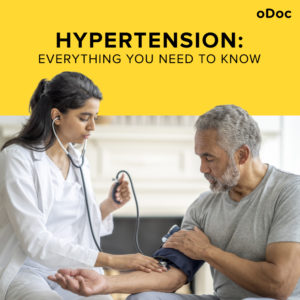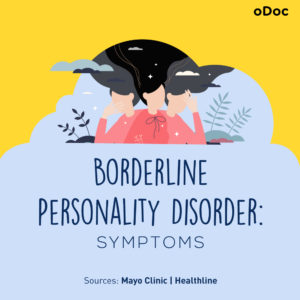
How to Keep Work Stress from Taking Over Your Life
How to Keep Work Stress from Taking Over Your Life In today’s fast-paced and competitive world, work stress has become an all-too-common problem that affects
Understanding Post Traumatic Stress Disorder
Our little island nation has experienced much trauma in our long history, this last year and a half being no exception. With the devastating Easter Sunday attacks last year and the current COVID-19 pandemic, many of us are dealing with the loss of loved ones and the stress of financial instability. As COVID-19 cases continue to rise, the government has imposed curfews or severe restrictions on movement. The aftereffects of these actions have challenged Sri Lankans, some of us harder than others.
Historically, Sri Lanka has not placed enough emphasis on the role of the emotional impact of traumatic events such as these on a person’s psyche. Our system lacks sufficient psychological & psychiatric support for people who’ve lived through traumatic circumstances, be it through the stress of the pandemic, Easter Sunday attacks, the 30 year long civil war that devastated our nation or the abuse happening in our own homes.
To that end, we’ve compiled a short primer on one of the most prevalent disorders that arise out of such events in the hope that it will prove of worth to help a loved one or your own self.
What is PTSD?
People who have lived through a traumatic event can find themselves experiencing emotional challenges long after the event has taken place.
PTSD can develop after either a single isolated event or more recurring traumatic experiences.
Not everyone who has undergone a traumatic event is likely to suffer from PTSD. Some may have strong feelings of sadness, stress, helplessness or fear but these symptoms can lessen over time as they continue to heal. However, a person who struggles with PTSD can experience symptoms that continue to cause them significant emotional disturbances and distress.
Symptoms of PTSD
A person who maybe suffering from PTSD may have 4 main types of difficulties:
If these symptoms persist for longer than a month and are not due to medication, substance use or other illness, it is likely that the person is suffering from PTSD.
Coping with PTSD
Many people suffering from PTSD turn to unhealthy coping strategies such as alcohol or drug abuse or deliberate self-harm. As such, it is important to seek out a qualified professional to speak with – this may help bring back hope through the sharing of experience and helping learn healthy & effective ways of coping.
What can I do to help if I see a loved one suffering from PTSD?
Finding ways to support a loved one with PTSD can be complicated but one of the most helpful things you can do yourself is learn about the symptoms and trials of living with PTSD. Familiarising yourself with what your friend or family member is going through can make it easier for them to have conversations.
Actively listening to your loved one instead of trying to “fix” their problems is helpful. Just give them a safe space free of judgement and criticism.
Encouraging your loved ones to seek help from a trained professional is of paramount importance. There are also many online support groups in Sri Lanka (links below) that can help your loved one connect with others who may be going through similar traumatic experiences.
What does PTSD look like in children?
Adults are not the only ones to suffer from PTSD and given the recent cases of child abuse in the news with perhaps countless cases happening behind closed doors, it is useful to understand how we can determine whether a child is suffering from PTSD. Symptoms vary depending on age as described below.
Preschool/Kindergarten
School age
Teens
How can we help children suffering from PTSD?
Try to keep your child’s schedules and lives as similar as possible to before the traumatic event. This might mean having your child continue with school and other activities with little time off in the beginning.
Let them talk about the traumatic experience when and if they feel ready. Encouragement and praise helps them talk about their feelings but be careful not to force the issue if they don’t feel like sharing. If not through speaking, drawing and writing may help.
Validate and reassure them that their feelings are normal.
Seek out professional help immediately if you have any concern that a child has thoughts of self-harm. Thoughts of suicide are serious at any age and should be treated right away.
Build their self-confidence by encouraging them to make everyday decisions where appropriate. Children suffering with PTSD can feel powerless and helpless, so making decisions, however minor, can help them get control over some parts of their lives.
Tell them that the traumatic incident is not their fault. They can talk about their feelings of guilt or shame but don’t let them blame themselves.
Stay in touch with caregivers. It’s important to talk to teachers, babysitters, and other people who are involved in your child’s life.
Resources & References
Sri Lankan Resources
You can get in touch with medical professionals on the oDoc app who are trained to help people suffering from PTSD. You can even purchase an oMind subscription package which gives you unlimited access to mental health professionals.
http://www.pulse.lk/everythingelse/psychological-support-sri-lanka/
http://marcelderoos.com
http://www.themorning.lk/the-ohana-project-leaving-no-one-behind/
Information
https://www.beyondblue.org.au/the-facts/anxiety/types-of-anxiety/ptsd
https://kidshealth.org/en/parents/ptsd.html
https://www.verywellmind.com/an-overview-of-ptsd-2797638
Online Support Groups
https://www.reddit.com/r/ptsd
https://www.myptsd.com
https://www.7cups.com
https://www.betterhelp.com
PTSD Blogs
http://www.healmyptsd.com
https://psychcentral.com/disorders/ptsd/
https://ptsdblogger.com
Mindfulness Apps
https://www.developgoodhabits.com/best-mindfulness-apps/

How to Keep Work Stress from Taking Over Your Life In today’s fast-paced and competitive world, work stress has become an all-too-common problem that affects

Hypertension: Everything You Need to Know Hypertension, commonly known as high blood pressure, is a chronic medical condition that affects a significant portion of the

Understanding Borderline Personality Disorder: Symptoms, Causes, and Treatment. Borderline Personality Disorder (BPD) is a mental health disorder characterised by instability in mood, behaviour, and relationships.
இப்போது மருத்துவ குறிப்புகளை உடனுக்குடன் உங்கள் இன்பாக்ஸ் இல் பெற்றுக்கொள்ளுங்கள்.